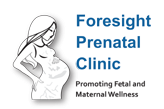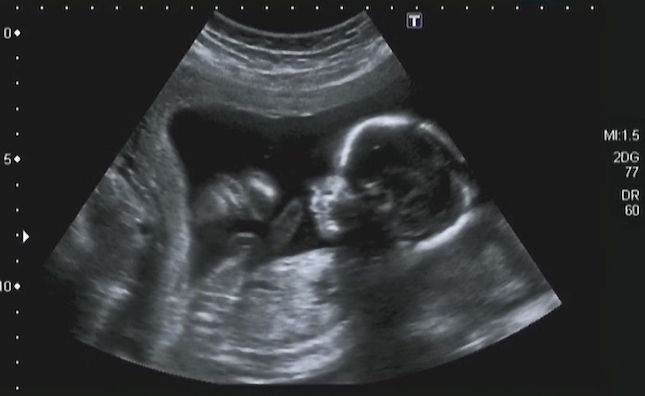WHAT IS A FIRST TRIMESTER ULTRASOUND?
-
Dating scan
It is done at anytime, but it is most accurate in the first 12 weeks of pregnancy.
- Combination test or Nuchal translucency (NT) Screening scan (11 to 14 weeks of pregnancy)
Screening during the first trimester usually consists of
- Blood tests to measure levels of pregnancy-associated placental protein A (produced by the placenta) and beta-human chorionic gonadotropin in the pregnant woman’s blood
- Ultrasonography to measure a fluid-filled space near the back of the fetus’s neck (called fetal nuchal translucency)
The blood tests are done to estimate the risk of Down syndrome. They may be done at about 11 to 14 weeks of pregnancy.
Ultrasonography can help estimate the risk of Down syndrome and certain other chromosomal abnormalities. It can show whether the space at the back of the fetus’s neck is enlarged. If it is, risk of these abnormalities is increased.
Alternatively, a blood test (called cell-free fetal nucleic acid [cfDNA] testing) may be done. For this test, small fragments of the fetus’s DNA, which are present in the pregnant woman’s blood in tiny amounts, are analyzed. This test can accurately determine the risk of Down syndrome and some other chromosomal abnormalities in couples with a high risk of having a fetus with a chromosomal abnormality. The test can be done as early as 10 weeks of pregnancy but can also be done later.
First-trimester screening provides results early. If results are abnormal and the couple wishes, chorionic villus sampling can then be done early to determine whether Down syndrome is present. Amniocentesis can also detect Down syndrome, but it is usually done later in pregnancy.
One advantage of 1st-trimester screening is that with earlier results, abortion, if desired, can be done earlier, when it is safer.
(READ MORE of NT SCAN)
There is a collection of fluid under the skin at the back of a baby’s neck. It can be measured using ultrasound when your baby is between 11 and 13 weeks and 6 days old. All babies have some fluid, but babies with Down’s syndrome may have an increased amount.
The Nuchal translucency (NT) Screening scan assess whether the baby is likely to have genetic defects like Down’s syndrome, Neural tube defects, 18-trisomy syndrome or Edwards syndrome, 13-trisomy syndrome. A screening test can only assess the risk of your baby having these defects. Where as a diagnostic test, such as Chorionic Villus sampling (CVS) or Amniocentesis will give you a definite diagnosis (but carries a risk of miscarriage).
The NT scan cannot tell for certain whether the baby is affected. However, it can help you decide whether or not to have a diagnostic test.
Combining NT scan ultrasound with the blood tests gives a more accurate result. This combination test is also called OSCAR (One-stop Clinic for Assessment of Risk for fetal Anomalies) and is carried out in the first trimester (11 to 14 weeks). It is a test to screen for chromosomal abnormalities.
The blood test measures the levels of the hormone free beta-hCG and the protein PAPP-A. Babies with Down’s syndrome tend to have high levels of hCG and low levels of PAPP-A.
The risk assessment is done by a combination of maternal age, fetal length, fetal Nuchal Translucency (NT) and serum biochemistry at 11 to 13 weeks and 6 days into your pregnancy.
The detection rate of Down’s Syndrome by NT and serum biochemistry method is about 90% accurate. This is far superior to the 65% by maternal age and 2nd trimester serum biochemistry; and 80% by NT and maternal age in the first trimester.
The test will enable you to decide whether you need any further invasive tests such as Chorionic Villus sampling or Amniocentesis.


